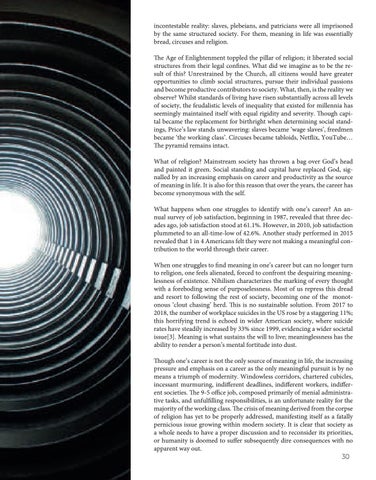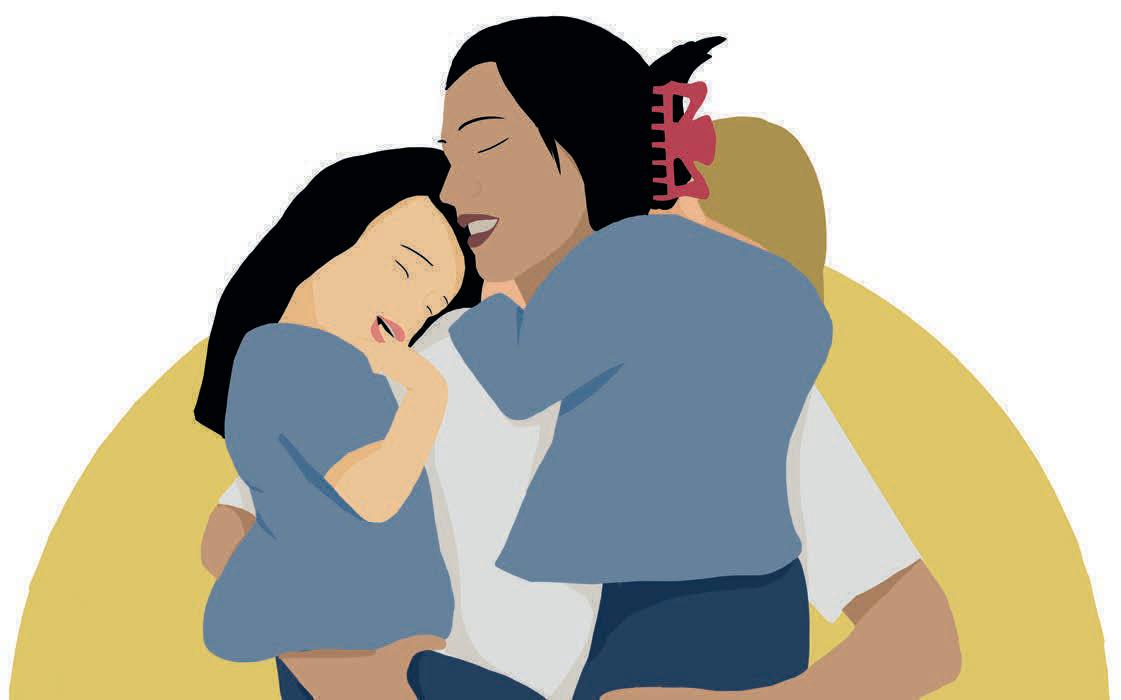incontestable reality: slaves, plebeians, and patricians were all imprisoned by the same structured society. For them, meaning in life was essentially bread, circuses and religion. The Age of Enlightenment toppled the pillar of religion; it liberated social structures from their legal confines. What did we imagine as to be the result of this? Unrestrained by the Church, all citizens would have greater opportunities to climb social structures, pursue their individual passions and become productive contributors to society. What, then, is the reality we observe? Whilst standards of living have risen substantially across all levels of society, the feudalistic levels of inequality that existed for millennia has seemingly maintained itself with equal rigidity and severity. Though capital became the replacement for birthright when determining social standings, Price’s law stands unwavering: slaves became ‘wage slaves’, freedmen became ‘the working class’. Circuses became tabloids, Netflix, YouTube… The pyramid remains intact. What of religion? Mainstream society has thrown a bag over God’s head and painted it green. Social standing and capital have replaced God, signalled by an increasing emphasis on career and productivity as the source of meaning in life. It is also for this reason that over the years, the career has become synonymous with the self. What happens when one struggles to identify with one’s career? An annual survey of job satisfaction, beginning in 1987, revealed that three decades ago, job satisfaction stood at 61.1%. However, in 2010, job satisfaction plummeted to an all-time-low of 42.6%. Another study performed in 2015 revealed that 1 in 4 Americans felt they were not making a meaningful contribution to the world through their career. When one struggles to find meaning in one’s career but can no longer turn to religion, one feels alienated, forced to confront the despairing meaninglessness of existence. Nihilism characterizes the marking of every thought with a foreboding sense of purposelessness. Most of us repress this dread and resort to following the rest of society, becoming one of the monotonous ‘clout chasing’ herd. This is no sustainable solution. From 2017 to 2018, the number of workplace suicides in the US rose by a staggering 11%; this horrifying trend is echoed in wider American society, where suicide rates have steadily increased by 33% since 1999, evidencing a wider societal issue[3]. Meaning is what sustains the will to live; meaninglessness has the ability to render a person’s mental fortitude into dust. Though one’s career is not the only source of meaning in life, the increasing pressure and emphasis on a career as the only meaningful pursuit is by no means a triumph of modernity. Windowless corridors, chartered cubicles, incessant murmuring, indifferent deadlines, indifferent workers, indifferent societies. The 9-5 office job, composed primarily of menial administrative tasks, and unfulfilling responsibilities, is an unfortunate reality for the majority of the working class. The crisis of meaning derived from the corpse of religion has yet to be properly addressed, manifesting itself as a fatally pernicious issue growing within modern society. It is clear that society as a whole needs to have a proper discussion and to reconsider its priorities, or humanity is doomed to suffer subsequently dire consequences with no apparent way out. 30
ISSIA Title Templates (2).indd 38
8/6/2020 2:16:55 PM














